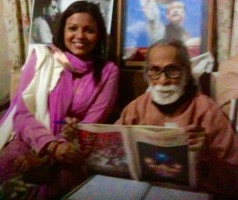Who are the candidates vying for Prime Minister Theresa May’s job and what have they said about Brexit?
British Prime Minister Theresa May has announced she is quitting, triggering a contest that will bring a new leader to power, with most of the frontrunners expected to push for a cleaner break with the European Union.
Below are the twelve Conservative lawmakers who have said they are running and what they have said about Brexit. They are arranged in the order listed by oddschecker, a website that compiles bookmakers’ odds.
BORIS JOHNSON, 54
The bookmakers’ clear favourite was the face of the official campaign to leave the European Union. The former London mayor resigned as foreign minister in July last year in protest at May’s handling of the exit negotiations.
Last week Johnson said Britain would leave the EU on October 31 “deal or no deal” adding that a second referendum on EU membership would be a “very bad idea” and divisive.
In a newspaper column on Monday, he said: “No one sensible would aim exclusively for a no-deal outcome. No one responsible would take no-deal off the table.”
“If we are courageous and optimistic, we can strike a good bargain with our friends across the Channel, come out well and on time – by October 31 – and start delivering on all the hopes and ambitions of the people.”
Johnson was educated at Eton College and Oxford University.
MICHAEL GOVE, 51
Gove, one of the highest-profile Brexit campaigners during the 2016 referendum, scuppered Johnson’s 2016 leadership bid by withdrawing his support at the last moment to run himself.
Seen as one of the most effective members of May’s cabinet, Gove, as May’s environment minister, backed her Brexit strategy.
On Brexit: Gove said he believed he could unite the party and deliver Brexit.
He said he would set out his Brexit plans in more detail at a formal leadership launch, but told the BBC: “In government and in this job I have got to grips with preparing for a no-deal, it is a possible outcome … We would be able to get through it but it is ultimately better for all of us if we secure a deal and leave in an orderly way.”
“We must leave the EU before we have an election,” Gove said on Twitter, saying Labour leader Jeremy Corbyn could end up as prime minister with support from Scottish nationalists.
Gove, who was adopted as a child, was educated at Oxford University.
DOMINIC RAAB, 45
Raab quit as May’s Brexit minister last year after just five months in the job, saying her draft exit agreement did not match the promises the Conservative Party made in the 2017 election.
He had held junior ministerial roles since being elected in 2010. Raab, a black belt in karate, campaigned for Brexit.
On Brexit: Raab told the BBC on Sunday that he plans to seek a “fairer deal” with Brussels, including renegotiating the customs and border plans relating to Northern Ireland. He also said he would not delay Brexit beyond October however, and was prepared to leave without a deal.
Raab said he expected that if Britain left without a deal, it would be likely get to keep around 25 billion pounds of its 39 billion pound exit payment, and the government could use that money to support businesses through Brexit.
The son of a Jewish refugee, Raab was educated at Oxford University.
ANDREA LEADSOM, 56
A pro-Brexit campaigner, Leadsom made it to the last two in the 2016 contest to replace Cameron. She withdrew after a backlash to an interview in which she said being a mother gave her more of a stake in the future of the country, seen by critics as an unfair attack on May, who has no children.
Leadsom quit as Leader of the House of Commons earlier this month, saying she did not believe the government’s approach would deliver on the Brexit referendum result.
On Brexit: She told the Sunday Times she would put significant effort into encouraging the EU to come up with a “deal that we can all live with” but also said Britain had to leave by the end of October, with or without a deal.
Leadsom was educated at the University of Warwick before spending 25 years in banking and finance.
RORY STEWART, 46
A former diplomat who once walked 6,000 miles across Iran, Afghanistan, Pakistan, India and Nepal, Stewart was promoted to International Development Secretary this month.
Stewart was first elected to parliament in 2010 and backed remaining in the EU in the 2016 referendum. He opposes a “no deal” exit and has been a vocal advocate of May’s deal with Brussels.
On Brexit: He told Sky News on Sunday that he favoured a “pragmatic, moderate Brexit”.
He said he would not seek to change May’s withdrawal agreement which has been rejected by parliament three times and said anyone who said they could do so by October was “deluding themselves or deluding the country”.
“We have a deal negotiated with the European Union on the Withdrawal Agreement. What I would be doing in parliament and with the British people is sorting out that political declaration and landing it so we can get out and move on.”
Stewart was educated at Eton College and Oxford University.
JEREMY HUNT, 52
Hunt replaced Johnson as foreign minister in July after serving six years as health minister. That role made him unpopular with many voters who work in or rely on the state-run, financially stretched National Health Service.
On Brexit: A remain supporter in the 2016 referendum, Hunt now says that while he would prefer to leave the EU with a deal, he believes a no deal exit is better than no Brexit.
However, in an article in the Daily Telegraph on Tuesday he became the most senior figure vying to replace May to reject a threat to leave with no deal by the end of October, saying lawmakers would block any such move.
“Any prime minister who promised to leave the EU by a specific date – without the time to renegotiate and pass a new deal – would, in effect, be committing to a general election the moment parliament tried to stop it. And trying to deliver no deal through a general election is not a solution; it is political suicide,” he wrote.
“A different deal is, therefore, the only solution – and what I will pursue if I am leader. That means negotiations that take us out of the customs union while generously respecting legitimate concerns about the Irish border. Technology offers great promise with ‘intelligent borders’.”
Hunt was educated at Oxford. He speaks fluent Japanese.
SAJID JAVID, 49
Javid, a former banker and a champion of free markets, has served a number of cabinet roles and scores consistently well in polls of party members. A second-generation immigrant of Pakistani heritage, he has a portrait of late Conservative prime minister Margaret Thatcher on his office wall.
On Brexit: Javid voted “Remain” in the 2016 referendum but was previously considered a eurosceptic. In a speech on May 20 he said there was little to fear from a no deal Brexit. “You see, whatever the outcome of the EU exit, the UK will still have the capacity and the capability to protect itself.”
In response to a disastrous showing for the Conservatives in elections to the European Parliament, Javid also said the results showed that “people want us to get on with it. Not another election or referendum asking if changed their mind”.
Javid, the son of a bus driver, was educated at Exeter University.
JAMES CLEVERLY, 49
Cleverly was appointed a junior Brexit minister earlier in May, having previously been deputy chair of the Conservative Party. He had a career in publishing before being elected to parliament in 2015.
On Brexit: He told BBC Radio: “My job in government is to make sure that we can leave with no deal. That is still one of the ultimate destinations of this process. It is not my preferred destination.”
“What it would be is an added level of uncertainty and difficulty at a time when we could well do without that. (But) we absolutely can deliver a Brexit with no deal.”
He joined the British army after school and completed a business degree.
MATT HANCOCK, 40
Health minister Hancock, a former economist at the Bank of England, supported “Remain” in 2016. First elected to parliament in 2010, he has held several ministerial roles.
On Brexit: He told BBC Radio that leaving without a deal was not an option as parliament would not allow it. He said he was open to renegotiate May’s deal with the EU but would focus on getting a Brexit deal through parliament.
Writing in the Daily Mail on Tuesday, he said the Conservatives needed to win back both pro-Brexit and pro-remain voters who had deserted it for other parties.
He told Sky News on Wednesday that he planned to renegotiate the future relationship with the European Union and would explore the possibility of changing the Withdrawal Agreement.
“We need to leave the EU with a deal before 31st October. I still think that is deliverable,” he said.
Hancock was educated at Oxford University.
ESTHER MCVEY, 51
The pro-Brexit former television presenter, who resigned as work and pensions minister in November in protest at May’s exit deal with the EU, said on Sunday Britain has to leave on Oct. 31 and “if that means without a deal, then that is what it means.”
On Brexit: She wrote in the Daily Telegraph that no government she led would ever seek an extension beyond Oct 31.
“We need to stop wasting time having artificial debates about renegotiating backstops or resurrecting botched deals. The only way to deliver the referendum result is to actively embrace leaving the EU without a deal,” she said.
McVey, who was placed in a foster home shortly after she was born but later returned to her parents, was educated at Queen Mary University of London.
MARK HARPER, 49
Harper, who was elected to parliament in 2005 after working as an accountant, has held junior ministerial positions and served as the government’s chief enforcer in parliament under former prime minister David Cameron.
In 2014 he resigned as immigration minister after it emerged his cleaner did not have permission to work in Britain.
On Brexit: Harper supported remaining in the EU at the 2016 referendum but says he would now vote to leave. He told Sky News he would extend Article 50 to give time to secure an exit deal. “I would rather be realistic with people and say actually if you want to leave with a deal, you want a serious attempt to get a good deal then it simply can’t be done by Oct 31.”
“I want to leave with a deal but I do think if we can’t get a deal that goes through parliament we need to leave without a Withdrawal Agreement but I think we will only persuade a majority in parliament of that if they think we have made a serious real attempt.”
He was educated at Oxford University.
KIT MALTHOUSE, 52
A former deputy mayor of London, Malthouse became a Member of Parliament in 2015. He is a junior housing minister and helped author the so-called Malthouse Compromise plan to replace the unpopular Irish backstop in Britain’s EU exit deal with alternative arrangements to avoid a hard border.
On Brexit: He told Sky News on Tuesday: “I would like to get us in shape for no deal, because I think the EU may well choose it … the EU are preparing strongly for no deal, they are putting lots of work into getting themselves ready. My view is we should be doing that together with them just in case they choose it but in the interim we do have to try and get a new deal through, I am not sure the existing Withdrawal Agreement is negotiable … we need a new approach.”
“I believe if we can unite around this idea of a new agreement that will get a majority in the House of Commons and then have an honest conversation about preparing for no deal, we can be in good shape for Oct 31.”
Malthouse was educated at Newcastle University.






















